Falling as we get older is quite common, and although most falls don’t cause serious injury, they can leave us feeling distressed. Whether it’s slippery floors, rickety stairs, or electrical cords, some of the most common causes of falls are in the home, where you might have a false sense of security. That’s why fall prevention starts with creating a safe living space. Making some simple changes to your home can make it more comfortable for you. It’s not always easy to know where to start – especially if you’ve lived in your house a long time.
Whatever our age, keeping our body and mind as fit and healthy as we can is good for our balance, movement and for preventing injury. Bones tend to become thinner and weaker as we grow older. Developing conditions such as osteoporosis cause the bones to break more easily, so it’s important to avoid trips and falls that can result in a fracture, and to keep our body strong to try to reduce the risk of falling.
Read on for some simple home changes for fall prevention.
Keeping your home safe
Make sure rooms and stairways are clutter-free and well-equipped with lighting, handrails, and grab bars.
- Remove all clutter, such as stacks of old newspapers and magazines, and trailing wires, especially from hallways and staircases. Keeping your access routes around the house clear makes good sense.
- Check every room and hallway for hazards such as loose or frayed carpet, slippery throw rugs, or floorboards that stick up. Repair, remove, or replace as needed.
- Grab bars and handrails are excellent safety devices for going up and down stairs, getting on and off the toilet, and stepping in and out of the bath without injuring yourself.
Light it right
- Inadequate lighting can be another major hazard. Fit brighter light bulbs where needed, particularly in stairways and narrow hallways.
- Night-lights in bedrooms, stairways and bathrooms provide guidance at night. Motion-sensor (PIR) lights stuck to a bedside cabinet or landing are also useful.
Make it non-slip
- Baths and showers, as well as floors in kitchens, bathrooms and porches, can become extremely dangerous when wet.
- Add carpet grip underneath rugs, or replace loose rugs with non-slip mats.
Keep safe
- Mop up spillages straight away so there is no risk of slipping.
- Keep climbing, stretching and bending to a minimum.
- Avoid balancing on steps to reach high items.
- Move items you use regularly to a waist-height shelf.
- Get help with tasks you can’t do safely on your own.
Keeping yourself safe
Some health conditions, medications and footwear can affect your ability to stay steady on your feet. You might not notice your health changing, as it can happen gradually. It’s important to have regular check-ups so any issues can be identified before they cause a fall. Here are a few tips to help you prevent a fall:
Keep active
- Regular exercise can reduce your risk of falling. Try simple stretches to loosen up in the morning before you start your day. Walking, dancing with friends, or joining a group can keep you fit and help you socialise.
- Weight-bearing exercise – where you support your own body weight through your feet and legs or arms and hands – helps to maintain bone strength.
- Exercises to improve and maintain sensation in your feet, and to keep the muscles and joints in your feet and ankles flexible, are also useful.
- Everyday activities should be enjoyable – walk, cycle, swim, jog, take the stairs – add years to your life and life to your years.
Health and wellness at home
- Hearing loss is gradual and will affect over 40% of people over 50. As well as being frustrating, it can be dangerous if you are unable to hear warnings. Talking to your doctor and explaining how this affects your day-to-day living is a good starting point.
- Have your eyesight and glasses checked regularly, at least every two years. Changes in eyesight as we age can lead to trips or loss of balance.
- Look after your feet by trimming toenails, using moisturiser, wearing well-fitting shoes and seeing a GP or chiropodist about any problems.
- Some medicines may make you more susceptible to falls and some interact if taken together. Ensure your GP is aware of all the medication you are taking.
Give yourself time
- Move more carefully and give yourself time. Moving too quickly from sitting to standing can make you feel light-headed or dizzy.
- Take a pause before moving once standing up or before climbing stairs.
- Don’t use a walking aid to get in or out of your chair. Push up on the arms of the chair and then take hold of the walking aid.
Plan ahead
- Have a falls plan, including who to call and how to get help if you do fall.
- Flag a contact on your mobile phone with the title ‘ICE’ (*in case of emergency) to help emergency services if you live alone.
- Wearable personal alarms allow you to call if you feel unwell, fall, or cannot reach a telephone.
- If you’ve had a fall or feel your balance isn’t as good as it was, it’s natural to feel worried. The good news is there are lots of things you can do to stay steady on your feet, feel more confident and in control.


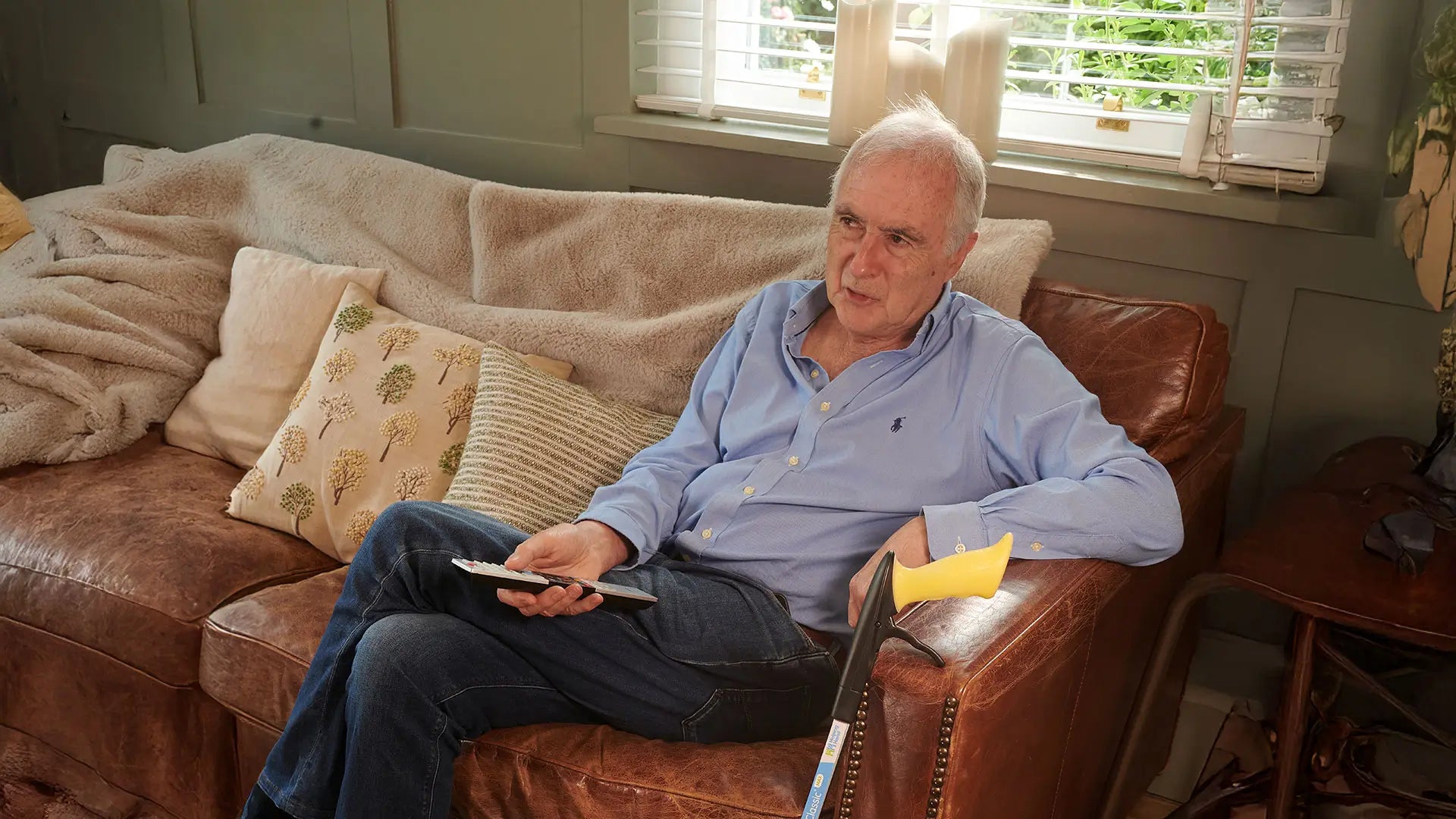
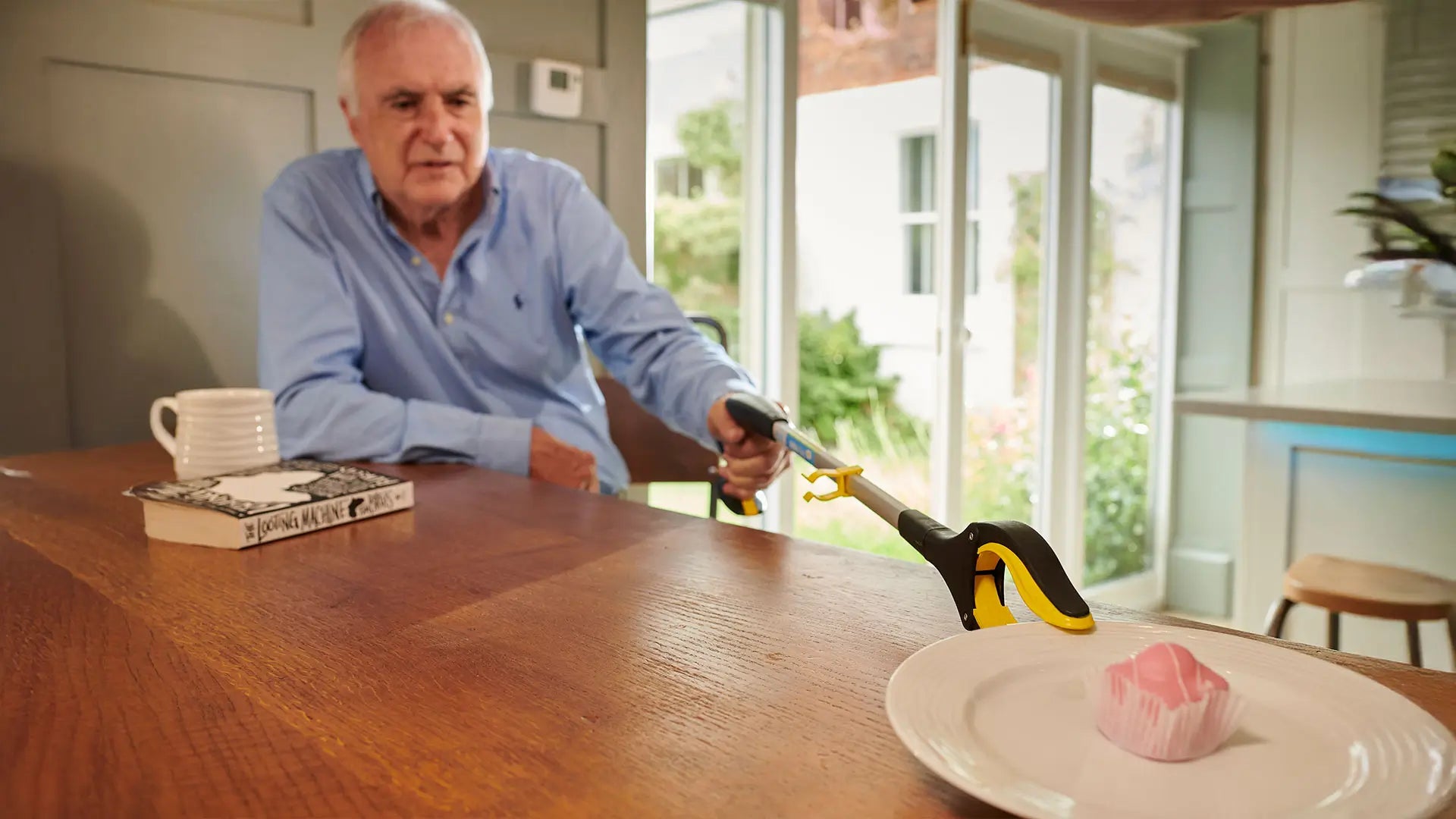
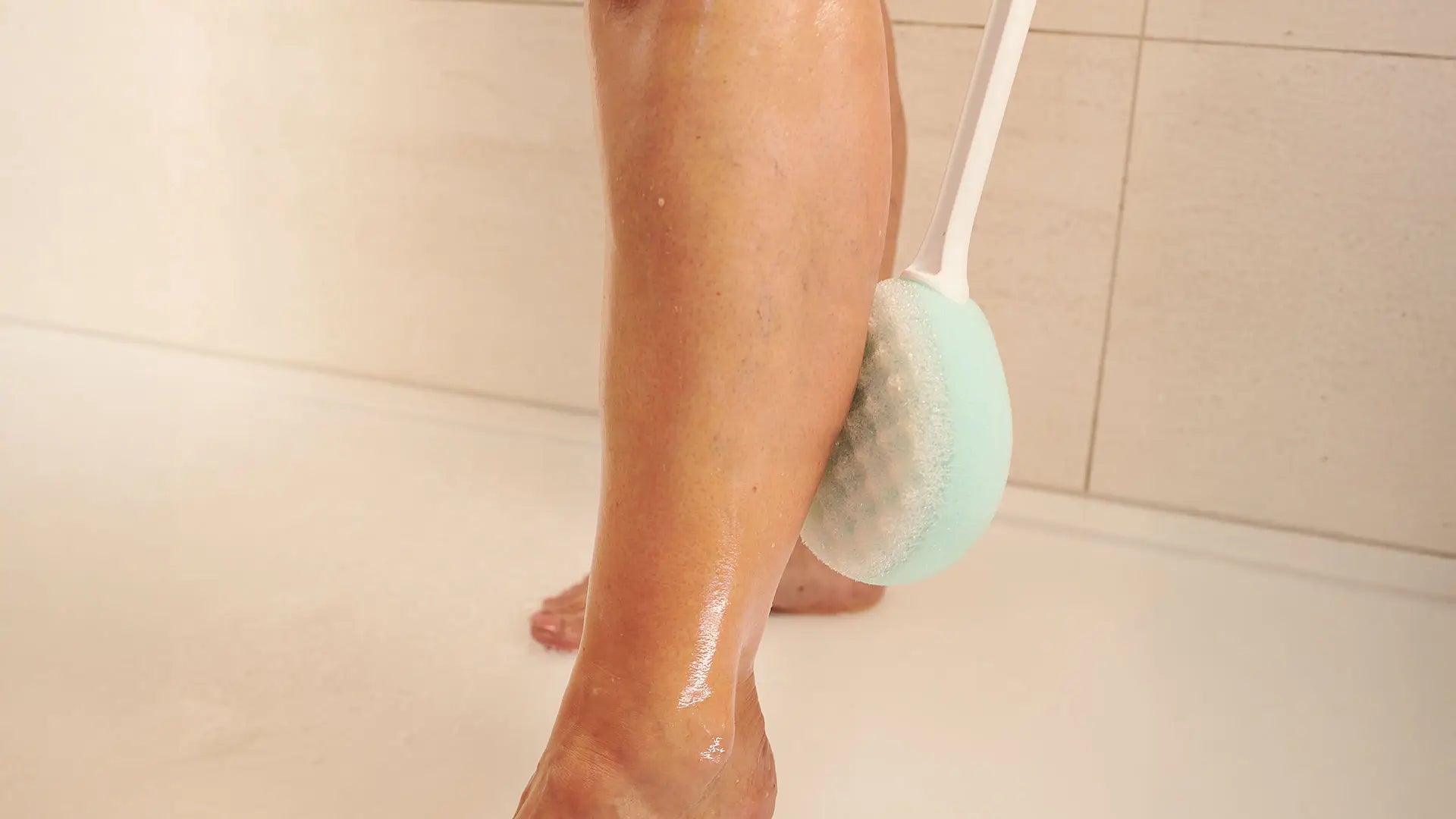
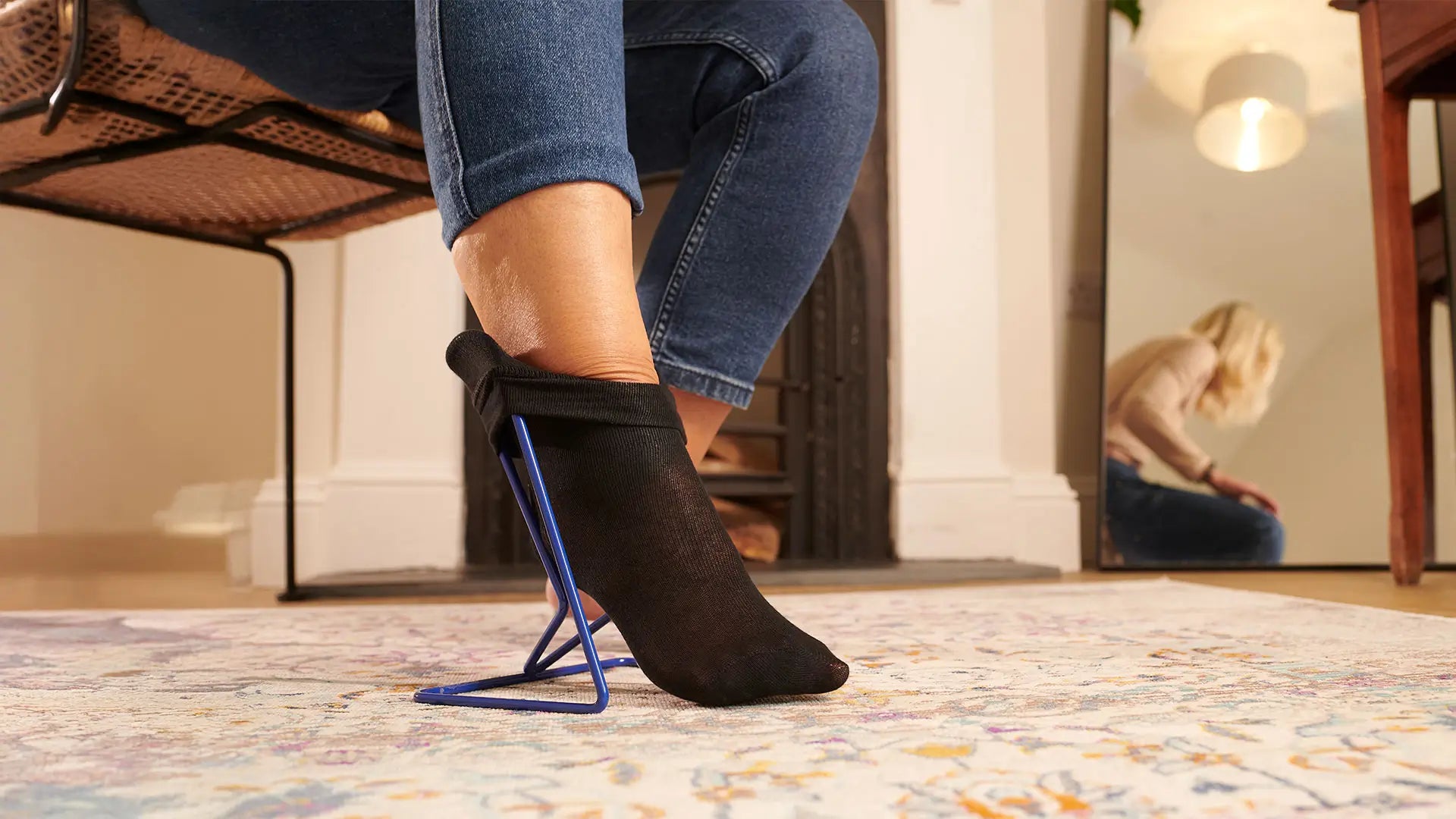
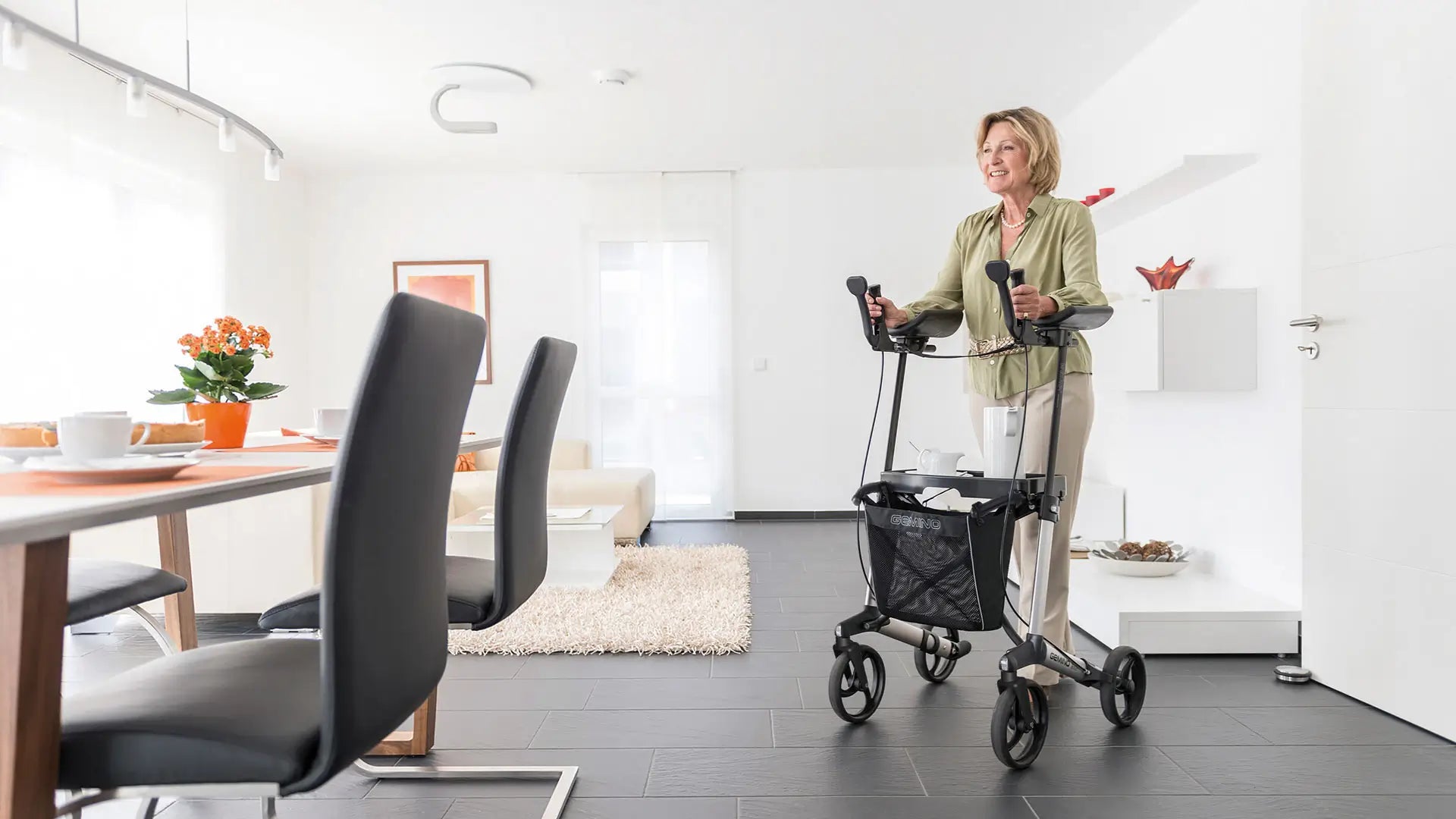
Share:
Top Tips on Bathroom Safety
23 ways to use your reacher/grabber around the home